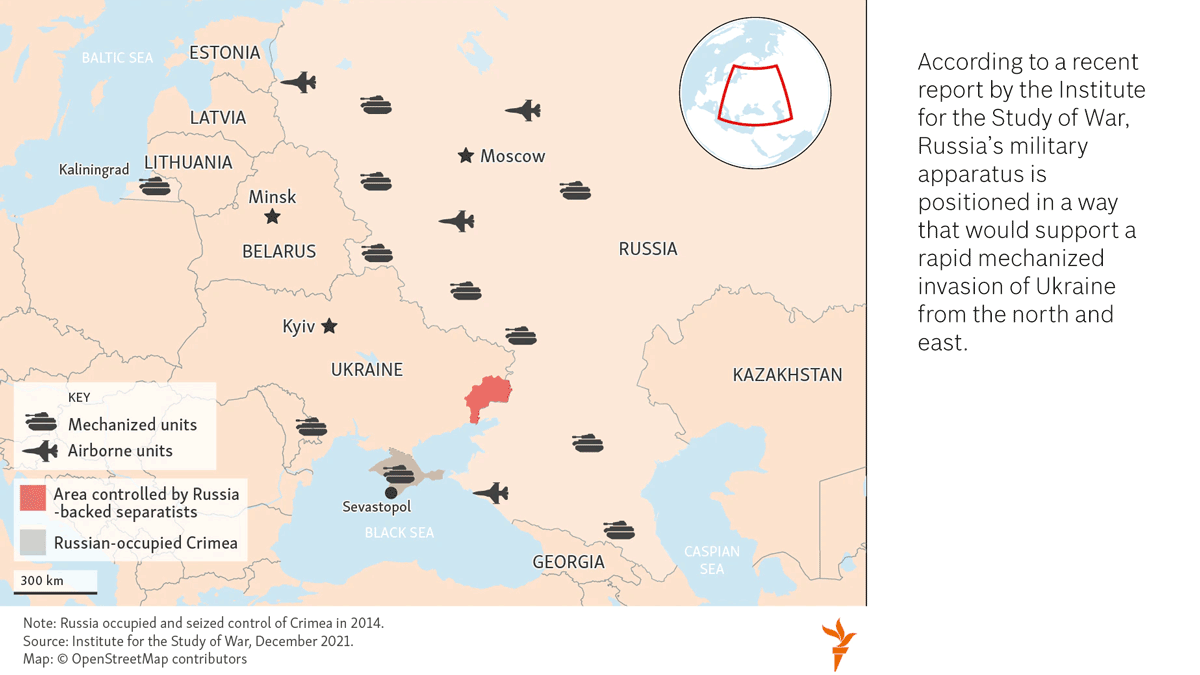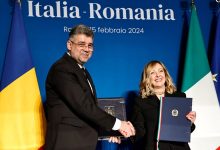Russia: EU to Prolong Restrictive Measures Over Situation in Ukraine
On January 13th, the European Council decided to prolong the restrictive measures currently targeting specific economic sectors of the Russian Federation by six months, until 31 July 2022. The Council decision follows the latest assessment of the state of implementation of the Minsk agreements – initially foreseen to happen by 31 December 2015 – at the European Council of 16 December 2021.
The sanctions in place, first introduced on 31 July 2014 in response to Russia’s actions destabilising the situation in Ukraine, limit access to EU primary and secondary capital markets for certain Russian banks and companies and prohibit forms of financial assistance and brokering towards Russian financial institutions. The sanctions also prohibit the direct or indirect import, export or transfer of all defence-related material and establish a ban for dual-use goods for military use or military-end users in Russia. The sanctions further curtail Russian access to certain sensitive technologies that can be used in the Russian energy sector, for instance, in oil production and exploration.
Background
During the assessment of the state of implementation of the Minsk agreements that occurred at the European Council of 16 December 2021, the EU leaders encouraged diplomatic efforts and supported the Normandy format in achieving the full implementation of the Minsk Agreements. In light of the fact that Russia did not fully implement these agreements, EU leaders unanimously decided to roll-over the economic sanctions in place against the country.
In addition to economic sanctions, the EU has in place different types of measures in response to Russia’s illegal annexation of Crimea and the city of Sevastopol and the deliberate destabilisation of Ukraine. These include diplomatic measures, individual restrictive measures (asset freezes and travel restrictions) and specific restrictions on economic relations with Crimea and Sevastopol.
EU restrictive measures in response to the crisis in Ukraine
On October 11st, 2021 the Council decided to impose restrictive measures on an additional 8 individuals for actively supporting actions and implementing policies that undermine or threaten the territorial integrity, sovereignty, and independence of Ukraine.
The persons added to the EU sanctions list include law enforcement officials – judges, prosecutors, and security officers – responsible for enforcing Russian law in the illegally annexed Crimea and Sevastopol. Those individuals have taken biased decisions in politically motivated cases and prosecuted or oppressed opponents of the illegal annexation of Crimea and Sevastopol.
Individual restrictive measures were first applied on 17 March 2014 in response to the unprovoked actions deliberately undermining and destabilising the territorial integrity of Ukraine. Other EU measures in place in response to the crisis in Ukraine include economic sanctions targeting specific sectors of the Russian economy and restrictions on economic relations with Crimea and Sevastopol.
The list of sanctioned persons and entities are kept under constant review and are subject to periodic renewals by the Council.
Since March 2014, the EU has progressively imposed restrictive measures against Russia. The measures were adopted in response to the illegal annexation of Crimea and the deliberate destabilisation of Ukraine.
The EU imposes different types of restrictive measures: diplomatic measures; individual restrictive measures (asset freeze and travel restrictions); restrictions on economic relations with Crimea and Sevastopol; economic sanctions; restrictions on economic cooperation.
Transatlantic coordination continues
The close coordination between the European Union and the United States on recent developments related to Russia and Ukraine continues at the highest level.
After the informal discussions of the Foreign and Defence Ministers of the EU Member States in Brest (France), the EU High Representative for Foreign and Security Policy and Vice President of the European Commission Josep Borrell spoke to US Secretary of State Antony J. Blinken on January 15th.
They discussed Russia’s military build-up around Ukraine and briefed each other about latest diplomatic engagements around Russia’s attempts to re-define security arrangements in Europe.
High Representative Borrell and Secretary Blinken rejected Russian initiative to re-build spheres of influence in Europe and underlined their determination to continue intense consultations on this and other issues between the US and EU – presenting a strong, clear, and united transatlantic front.
High Representative Borrell and Secretary Blinken reaffirmed support to Ukraine’s sovereignty, independence, and territorial integrity and emphasised the need for Russia to de-escalate and fully implement the Minsk agreements. They reviewed ongoing preparations of deterrent measures and of a robust international reaction with massive consequences for Russia in case of any further aggression against Ukraine.
They also repeated that the EU and US remain open to dialogue with Russia, but never at the expense of freedom, sovereignty, independence of members of transatlantic community and their partners or at the expense of the respect of fundamental values and relevant international obligations.
The Foreign Ministers of EU Member States agreed on January 14th in Brest to further strengthen coordination with the United States, with NATO and to enhance European Union cooperation within the OSCE and tasked the HRVP to coordinate these activities.







